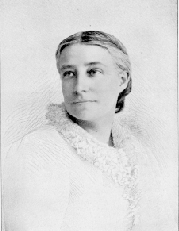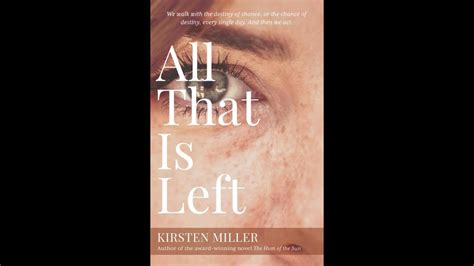A Quote by F. Scott Fitzgerald
I noticed that she wore her evening dress, all her dresses, like sports clothes-there was a jauntiness about her movements as if she had first learned to walk upon a golf course on clean, crisp, mornings.
Related Quotes
so my grandmother was not without humanity. and if she wore cocktail dresses when she labored in the garden, they were cocktail dresses she no longer intended to wear to cocktail parties. even in her rose garden she did not want to appear underdressed. if the dresses got too dirty from gardening, she threw them out. when my mother suggested to her that she might have them cleaned, my grandmother said, "what? and have those people at the cleaners what i was doing in a dress to make it that dirty?" from my grandmother i learned that logic is relative.
She remembered that once, when she was a little girl, she had seen a pretty young woman with golden hair down to her knees in a long flowered dress, and had said to her, without thinking, "Are you a princess?" The girl had laughed very kindly at her and asked her what her name was. Blanche remembered going away from her, led by her mother's hand, thinking to herself that the girl really was a princess, but in disguise. And she had resolved that someday, she would dress as though she were a princess in disguise.
I think that one morning, the Papess woke in her tower, and her blankets were so warm, and the sun was so golden, she could not bear it. I think she woke, and dressed, and washed her face in cold water, and rubbed her shaven head. I think she walked among her sisters, and for the first time saw that they were so beautiful, and she loved them. I think she woke up one morning of all her mornings, and found that her heart was as white as a silkworm, and the sun was clear as glass on her brow, and she believed then that she could live, and hold peace in her hand like a pearl.
Zoe readied her arrows. Grover lifted his pipes. Thalia raised her shield and I noticed a tear running down her cheek. Suddenly it occurred to me: this had happened to her before.She had been cornered on Half- Blood Hill. She'd willingly given her life for her friends. But this time she couldn't save us.
In a way, her strangeness, her naiveté, her craving for the other half of her equation was the consequence of an idle imagination. Had she paints, or clay, or knew the discipline of the dance, or strings, had she anything to engage her tremendous curiosity and her gift for metaphor, she might have exchanged the restlessness and preoccupation with whim for an activity that provided her with all she yearned for. And like an artist with no art form, she became dangerous.
At that moment a very good thing was happening to her. Four good things had happened to her, in fact, since she came to Misselthwaite Manor. She had felt as if she had understood a robin and that he had understood her; she had run in the wind until her blood had grown warm; she had been healthily hungry for the first time in her life; and she had found out what it was to be sorry for someone.
The Girl of the Period, sauntering before one down Broadway, is one panorama of awful surprises from top to toe. Her clothes characterize her. She never characterizes her clothes. She is upholstered, not ornamented. She is bundled, not draped. She is puckered, not folded. She struts, she does not sweep. She has not one of the attributes of nature nor of proper art. She neither soothes the eye like a flower, nor pleases it like a picture. She wearies it like a kaleidoscope. She is a meaningless dazzle of broken effects.
Up on the roof Tatiana thought about the evening minute, the minute she used to walk out the factory doors, turn her head to the left even before her body turned, and look for his face. The evening minute as she hurried down the street, her happiness curling her mouth upward to the white sky, the red wings speeding her to him, to look up at him and smile.
But there was still something missing. Something that nagged at her-an emptiness she couldn't explain. There were mornings she woke with her heart pounding wildly and the sensation of arms wrapped around her. But the feeling slipped away the moment she opened her eyes, and no matter how quickly she squeezed them shut, she couldn't recapture the contentment she'd felt.





































